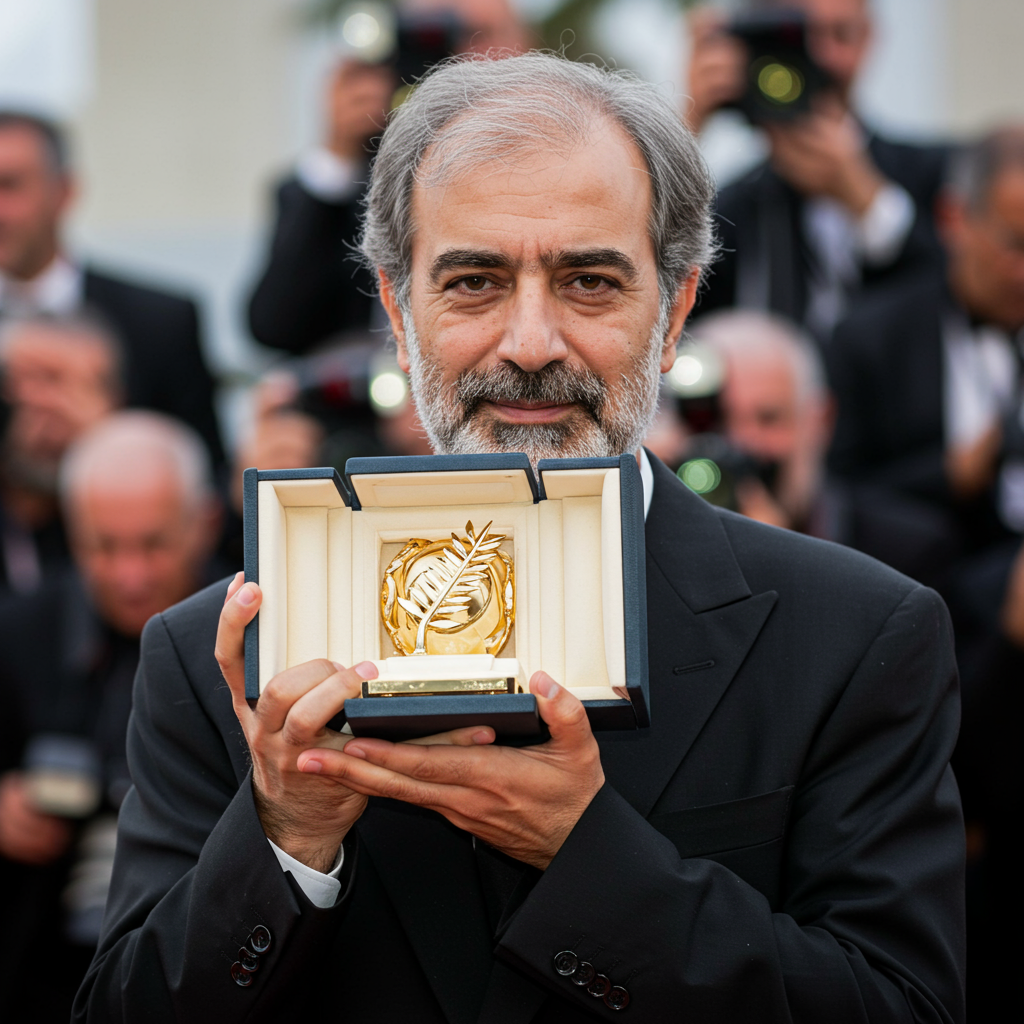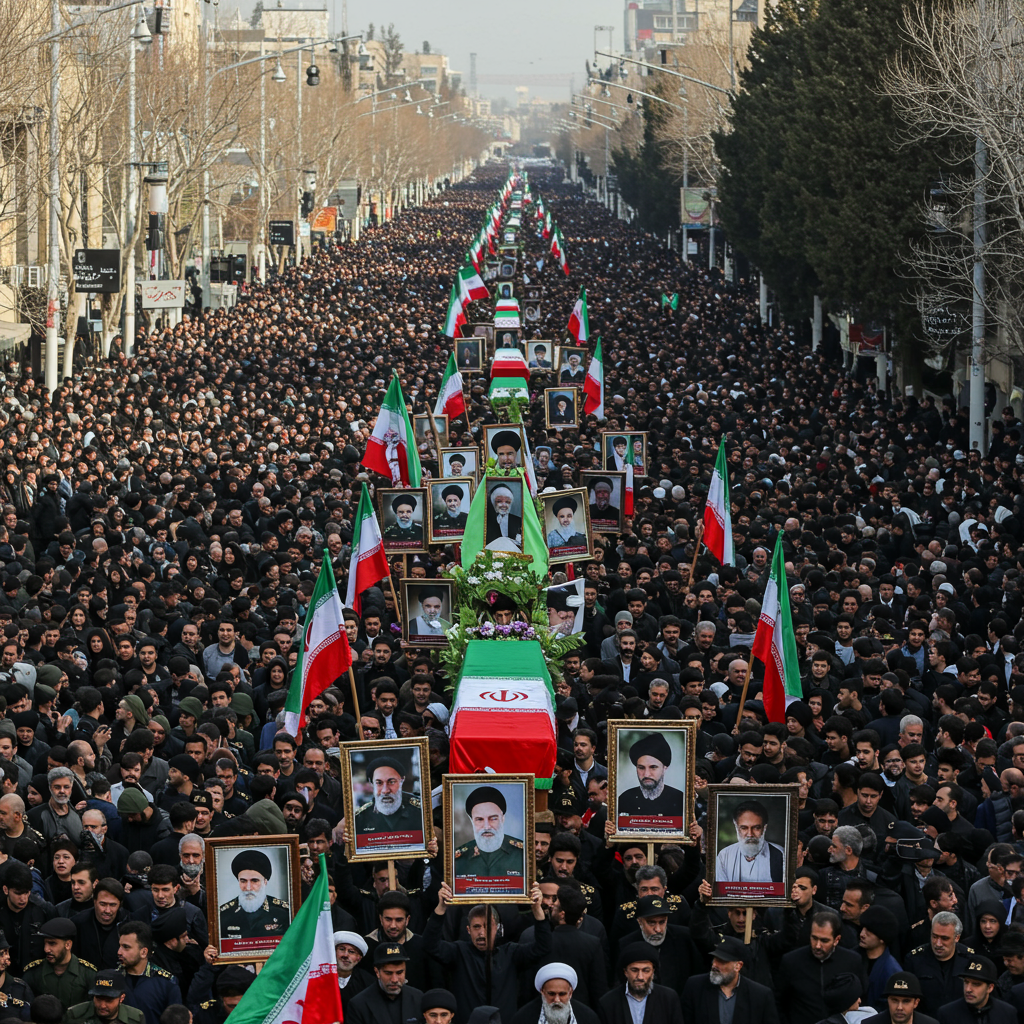Jafar Panahi’s Cannes Triumph Becomes a Stand Against Oppression
Iranian filmmaker Jafar Panahi, a figure long celebrated and persecuted for his courageous cinema, has used the global stage of the Cannes Film Festival to deliver a powerful message against the restrictions imposed by the Iranian regime. Panahi was awarded the prestigious Palme d’Or, the festival’s top prize, for his latest feature, It Was Just an Accident, marking a triumphant return to the international film circuit after years of bans and imprisonment.
Receiving the Palme d’Or, Panahi was met with a thunderous standing ovation, a palpable acknowledgment of his resilience and artistic integrity. He seized the moment, urging fellow Iranians to unite for the country’s freedom. “What’s most important now is our country and the freedom of our country,” Panahi declared. “Let us join forces. No-one should dare tell us what kind of clothes we should wear, what we should do, or what we should not do.” His defiant words underscored a central theme of his life and work: the relentless pursuit of freedom in the face of tyranny.
It Was Just an Accident: Cinema Born from Experience
It Was Just an Accident is described by critics as a “furious but funny revenge thriller” and a “stark condemnation of abusive power” that squarely targets oppressive regimes. The film, reportedly shot in secret within Iran, draws heavily from Panahi’s own harrowing experiences, particularly his time in prison.
Panahi explained that his perspectives on filmmaking profoundly shifted after his incarceration. Meeting other prisoners and hearing their stories of “violence and the brutality of the Iranian government” provided the direct inspiration and a “new commitment” that fueled this project. The narrative centers on five ordinary Iranians who encounter a man they believe subjected them to torture during their imprisonment, reflecting the harsh realities shared by those Panahi met inside. Critics have hailed it as his “most emotionally explicit film yet,” exploring state violence, revenge, and the unsettling coexistence of everyday life with underlying tyranny.
A History of Resistance and Secret Filmmaking
Panahi’s victory at Cannes holds immense significance given his long and difficult history with the Iranian authorities. For over 15 years, he faced severe restrictions, including bans on filmmaking and international travel. He has been imprisoned multiple times, most recently released in February 2023 after serving seven months of a six-year sentence. This specific term stemmed from his protest against the detention of two fellow filmmakers critical of the government. Previously, in 2010, he received a six-year sentence for supporting anti-government protests and producing “propaganda against the system,” a sentence that initially included the filmmaking and travel bans, though he was conditionally released after two months.
Despite these attempts to silence him, Panahi never stopped creating. He became known for making films clandestinely, often in unconventional locations like his living room (This Is Not a Film) or a car (Taxi), works that were then smuggled out of the country for international audiences and festivals. His appearance at Cannes marked his first at an international festival in 15 years, following the recent lifting of his travel ban.
Returning Home Despite the Risk
Perhaps the most profound statement from Panahi after his win was his vow to return to Tehran immediately following the festival, despite the significant risks of prosecution upon his arrival. This decision stands in contrast to fellow dissident filmmaker Mohammad Rasoulof, who fled Iran after attending Cannes the previous year. Panahi remains committed to staying in his country, asserting that filmmakers and artists will always find a way to express themselves, and “no powers that be can halt such people in their tracks.”
The award was presented by French actress Juliette Binoche, the Cannes jury president, and Australian actress Cate Blanchett. Binoche emphasized the provocative and transformative power of cinema, stating it mobilizes a force that turns “darkness into forgiveness, hope and new life.” Blanchett applauded the festival for recognizing how cinema “creates openings for wider social conversations to take place,” a sentiment perfectly embodied by Panahi’s win. The ceremony itself proceeded despite a significant power cut in the area, attributed by officials to suspected attacks.
A Rare Filmmaking Achievement
At 64, Jafar Panahi has now achieved the rare distinction of winning the top prize at all three major European film festivals: the Palme d’Or at Cannes (It Was Just an Accident), the Golden Bear at Berlin (Taxi), and the Golden Lion at Venice (The Circle). This places him in an elite group of only three other directors in history to accomplish this feat.
His latest win could potentially open doors for recognition in Hollywood. While four of the last five Palme d’Or winners have received Best Picture nominations at the Oscars, It Was Just an Accident is unlikely to be eligible for the Best International Feature Oscar. The category requires a cinematic release in the film’s country of origin, and Panahi’s films remain banned in Iran. Nevertheless, the film’s acquisition by indie distributor Neon, known for backing several recent Palme d’Or winners that went on to Oscar success, highlights its significant artistic and potentially commercial impact on the global stage.
Jafar Panahi’s victory at Cannes is far more than an artistic accolade; it is a testament to the enduring power of cinema as a tool for truth and defiance, and a beacon of hope for freedom in Iran.
References
- https://www.bbc.com/news/articles/cm26v9dp9j1o
- https://www.aol.com/iranian-director-speaks-cannes-triumph-183020600.html
- https://www.bbc.co.uk/news/articles/cm26v9dp9j1o
- https://au.lifestyle.yahoo.com/iranian-director-speaks-cannes-triumph-183020193.html
- https://ca.news.yahoo.com/cannes-prepares-award-palme-dor-040042811.html




